
The Ballad of Frankie Ballard: A Journey From Cereal City to Music City
On certain nights in downtown Battle Creek, the air smells like Apple Jacks. It's most remarkable late at night or early in the morning during the winter months. Sounds of Christmas bounce off the cold concrete as you stand between the Griffin Grill and Pub and a dilapidated 20-story skyscraper that used to house the city's country radio station. Whiffs of baked sugar usher you along an empty one-block stretch of old commercial buildings, many struggling to keep tenants.
It’s hard to explain it to people, but that blue collar -- and we’re proud of it too -- but that blue-collar, sort of, 'I don’t need any help and I’ll work for it' kind of attitude is very apparent in me as a person.
It's a city of dreams and devastating realities. Battle Creek is known as Cereal City, USA because it is, or was the home of Kellogg's, Post and Ralston. But the museum has closed, and much of the production -- plus many of the jobs -- has long since departed, leaving years of unintended blight that local leaders and residents fight diligently to turn into something good. Frankie Ballard's hometown is full of people who don't give up.
“That whole thing, I think, leaks out from Detroit,” Ballard tells Taste of Country of his Michigan hometown's blue-collar pride.
"My parents are from Detroit, and my dad has just always had that. I grew up watching him work really, really hard at life. That’s just the vibe. It’s hard to explain it to people, but that blue collar -- and we’re proud of it, too -- but that blue-collar, sort of, 'I don’t need any help and I’ll work for it' kind of attitude is very apparent in me as a person, so it has to be therefore apparent in my music.”
It's apparent in his voice. Ballard's gravel resembles Kid Rock or Uncle Kracker's hard-living tone. How much of that is a part of similar habits or a similar raising is worth debating. Ballard grew up in a depressed part of America, yet somehow came out singing about sunshine, drinky-drinks and a "barefoot country girl swayin' to a song that's playin' on the radio station."
In June, Ballard celebrated his first No. 1 hit. 'Helluva Life' took nearly a year to top the charts, going Gold in the meantime. It's the song that just wouldn't quit from an artist who never considered it. 'Sunshine & Whiskey' became his second No. 1. He recognizes the achievements by buying expensive suits or amplifiers, but remains even-keel emotionally. On the day he celebrated 'Helluva Life,' Ballard's sister gave birth, forcing his parents to make a difficult decision.
“My mom was so upset because she really wanted to be here and my dad, too,” Ballard shares. “I said, ‘You have to be (with her). That’s so important and she needs you guys there. Lela's planning on having one or two kids, that’s a big deal. I’m planning on having about 30 of these, so don’t worry about it."
An Elvis Man
Frank Robert Ballard IV likes to tell the story of his first musical memory. It may be his first life memory, actually. There he is on his living room carpet, trying to keep his eyes open as his father and a neighbor pick and sing songs by Kenny Rogers, Elvis Presley, Johnny Horton and other legends that most country fans (and some singers) can only name a hit or two from.
“My dad never did anything professionally in music," the singer says. "I don’t even know why they got together. I think of it now as an adult, like I guess they just called each other up like ‘Wanna jam?’"
Dad was an Elvis man as opposed to a Beatles man (there's a difference, Ballard insists) and he had an impressive record collection. As young Frankie came of age in Battle Creek, the two of them would team up to perform for family or friends at Thanksgiving. Mom would push Frankie to the center of the room to sing while dad kept the beat. Few can pinpoint a moment or a reason why they fell in love with what they do like Frankie can.
“I just really liked hanging out with my dad, and he really loved country music, so I started to fall in love with all these old school guys."
Ballard's voice was built for storytelling. He's confident and concise, and the words seem to rise from the ashes of charred memories stored deep in his soul. He has a smoker's voice, which is unusual for someone who is just 31 years old. His presence is calming, and he makes great eye contact. It felt like a conversation, not an interview, each time ToC sat down to speak with him throughout 2014.
All those influences went into the pot and I didn’t know what it was going to be until I guess I started writing songs … The things that were coming out of me were country songs. The way that I was singing, country is what came out of me.
His dedication to the older generation is genuine and thorough. It begins in his heart and spreads across his body, literally.
"I’ve always been a fan of American traditional tattooing," Ballard told ToC in February, two weeks after the 'Sunshine & Whiskey' album was released. "Which is Cap Coleman and Sailor Jerry and those guys that were tattooing all the Navy guys in the ‘40s." The anchor on his right bicep pays homage to that style, but also to family. "Est. 1887" recognizes Frank Robert Ballard, his great-grandfather.
"(It) Represents the strong men that came before me," the singer says. "It’s what keeps me anchored to the ground. It reminds me to be a good man, to live up to the name.”
Old souls often stay anchored to their hometowns forever, and Battle Creek is not the kind of place that's easy to escape. The town isn't flush with money, so when one trips, he can quickly find himself working third shift at the auto parts plant.
Ballard first escaped in 2003. He went to college at Western Michigan University in Kalamazoo, Mich., just 22 miles west of his alma mater, Lakeview High School. He was a star on the Bronco baseball team, but during his senior year his focus began to shift from a 32-inch piece of maple to a six-stringed piece.
“I would stay after practice and take an extra 300 ground balls,” Ballard reveals, "and then all of a sudden I was leaving early and heading to the blues jam.”
A talent search took Ballard to Nashville. In 2008, Kenny Chesney went looking for the "Next Big Star," organizing battle of the bands events across America. One regional winner was chosen for a short run of dates on Chesney's national tour. Ballard and his band won.
“I really didn’t wanna do it because I don’t like battle of the bands,” he admits. “I was really just playing honky-tonks and selling beer, playing cover songs. Doing that ('Next Big Star'), you had to play some original music and that really gave me the confidence to go ‘Hey, maybe I can take this thing to the next level.'"
He was making a name for himself regionally, but not for his country chops necessarily. Ballard cut his teeth at worn-down clubs like Wonderful's Funky Basement in Portage, Mich. It's a place college kids would go to jam, listen to good blues music and -- if we're being honest -- drink underage. Bikers and other local toughs with names like "Rags" would fill it up for open-jam nights on Thursdays, or to see headliners on the weekends. But you were more likely to hear Willie Dixon than Willie Nelson songs.
'Don't Sing That Sh--!'
Chuck Berry, the Allman Brothers Band, Lynyrd Skynyrd ... the first album Ballard ever bought with his lawn-mowing money was a George Thorogood and the Destroyers greatest hits project. He still plays Dickey Betts' riffs live and tries to be Billy Gibbons while he's warming up his amplifier.
For a few years, Stevie Ray Vaughn was a God. Prior to that it was whatever Ballard's parents would put on the radio or sing to him in lieu of a bedtime story when he was real young. Ballard's mother, Meg, is Irish, so she'd sing Irish tunes.
“Armor cars and tanks and guns, like these IRA songs and my dad would come by and be like ‘Don’t sing that sh-- to him!’” Ballard recalls, laughing. "And then she would leave and he’d come in and sing me ‘A Boy Named Sue’ and she’d come by and go, ‘Don’t sing that sh-- to him!’"
“All those influences went into the pot and I didn’t know what it was going to be until I guess I started writing songs,” Ballard admits. “The things that were coming out of me were country songs. The way that I was singing, country is what came out of me."
The truth is, it wasn't hard for Ballard to leave Battle Creek. He was itching to get to Nashville, and now he had the confidence and a few connections. He didn't know anyone upon arriving in the cty, but didn't take long to make friends -- and magic. Early on he played a few shows with Jake Owen, and the two hit it off. He signed to Warner Brothers in 2010 and released a little-heard but promising self-titled album on Reprise Records. Two singles charted at about No. 30 ... and then came a long, agonizing break.
“When a single doesn’t work," Ballard explains, "you’re left with a lot of feeling of, ‘Why?’ Was it me, did I have some bad relationships, did I screw up some radio dinner? What happened?”
All the momentum he'd build with radio tours, shows and tours ran into a thick wall when the decision was made to return to the studio instead of to radio with a third single from 'Frankie Ballard.' It was a dark 18 months, he says, but along the way he dedicated himself to creating an album he enjoyed making. It began with a new producer in Marshall Altman. Eventually his long hair gave way to the suave Rat Pack look he debuted with a four-figure Valentino tuxedo at the 2014 CMA Awards.
The turning point may have come when Owen called him one day and out of nowhere started telling him how talented he is. Ballard remembers being at he Red Door in East Nashville when his phone buzzed.
"I was out drinking or feeling sorry for myself because there was no next single in sight," he recalls. "He didn’t really have any advice, it was just more like, ‘Hey man, you’re a talented dude. And you kick ass.’”
"I dunno why he called me, but it came at a really cool time," Ballard adds. "I needed to be picked up a little bit and to hear somebody like that with a lot more success than I’ve had call and say, ‘Hey man, you’re alright. You’ve got what it takes, just make good decisions and do what you do.’ I hung up the phone with him and felt great. And I’ve since thanked him for that phone call.”
(It) Represents the strong men that came before me. It’s what keeps me anchored to the ground. It reminds me to be a good man, to live up to the name.
The 'Sunshine & Whiskey' album was either going to work or flop, but Ballard knew it was going to be stamped with his signature, which is something he couldn't say of his first effort. On the record he plays almost all of the guitars, plus some keyboards and percussion (he's a trained drummer in addition to a guitar virtuoso). Altman understood his need to breathe and encouraged it with late-night jams or hangs to talk art and watch old Led Zeppelin videos on YouTube.
“I really wanted to play on this stuff. I wanted to create a sound for myself and the only way I knew how to do that is to pour as much of me onto the record as I could," he says.
Ballard had Rolling Stones guitarist Keith Richards in mind while recording. "There’s a guy that there’s a 1,000 session players that can play circles around Keith Richards. But nobody, and I mean nobody, could have played ‘Honky Tonk Woman’ and made it feel the way that it feels. Only Keith could have.”
“That’s what I wanted for my music.”
The Manuel suit he wore to the 2014 ACM Awards, a 1970 Marshall JTM 45 Amplifier and now the Valentino tuxedo ... that's about all Ballard has bought to celebrate his successes. He jokes about having 30 No. 1 hits, but doesn't really assume airplay.
"Some artists, I don’t know what it is, but they just have an attitude like ‘I created this stuff and you guys should play it, country radio.’ I’ve always felt very honored when a radio station will make a spot because they can’t play everything," he admits.
It's difficult to imagine this 31-year-old losing perspective now that he's on the verge of becoming Michigan's most-prolific country singer (move over, Josh Gracin). At each turn, with every success, he recalls and appreciates where he came from.
"When I was little," he says, pausing to reflect on how it feels to have a No. 1 hit, "I would dream about being on stage in front of a bunch of people playing guitar and singing a song. And you know, just daydreaming like kids do. I guess as you get older you don’t get into that imagination space as much as you did when you were little."
"All of a sudden, when I found out, I like instantly snapped back into that time," he recalls. "I felt like a little kid again, like I was crawling through the woods playing cowboys and indians. Just those dreams that I had, it was like, ‘Man, this is really happening.’”
More From Taste of Country

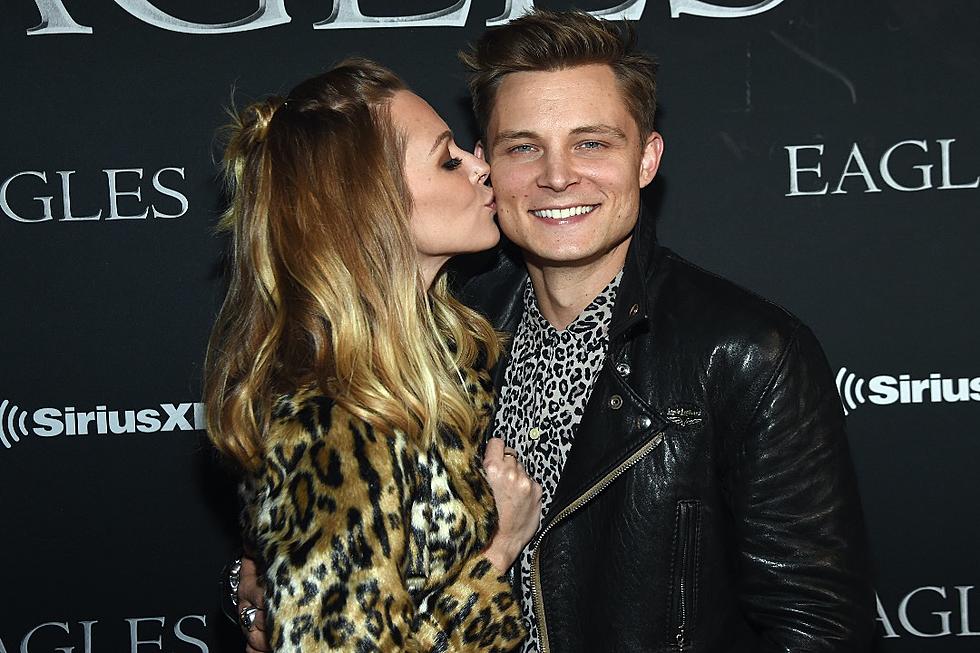

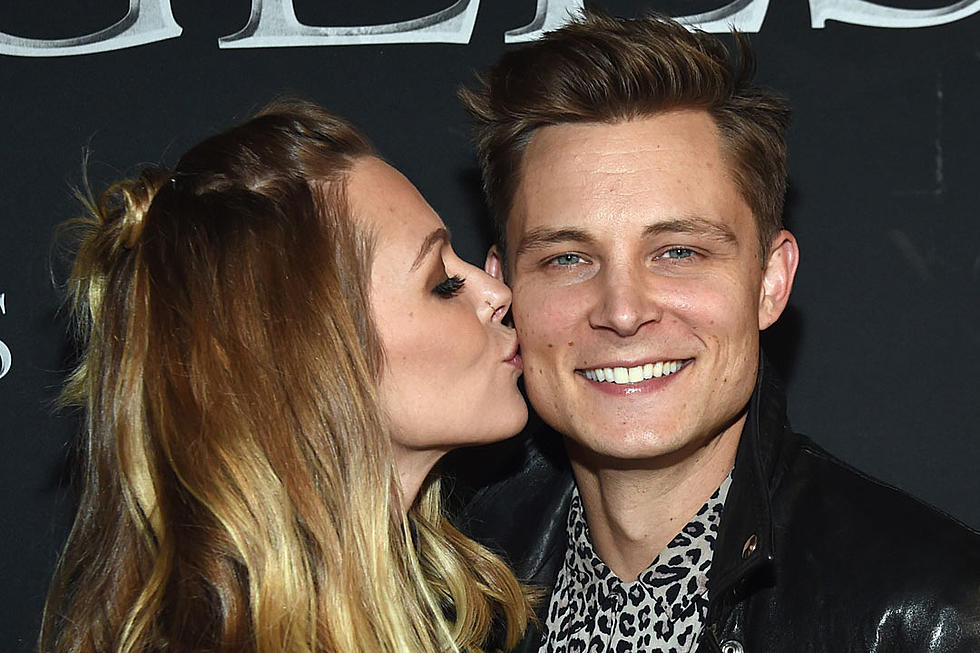
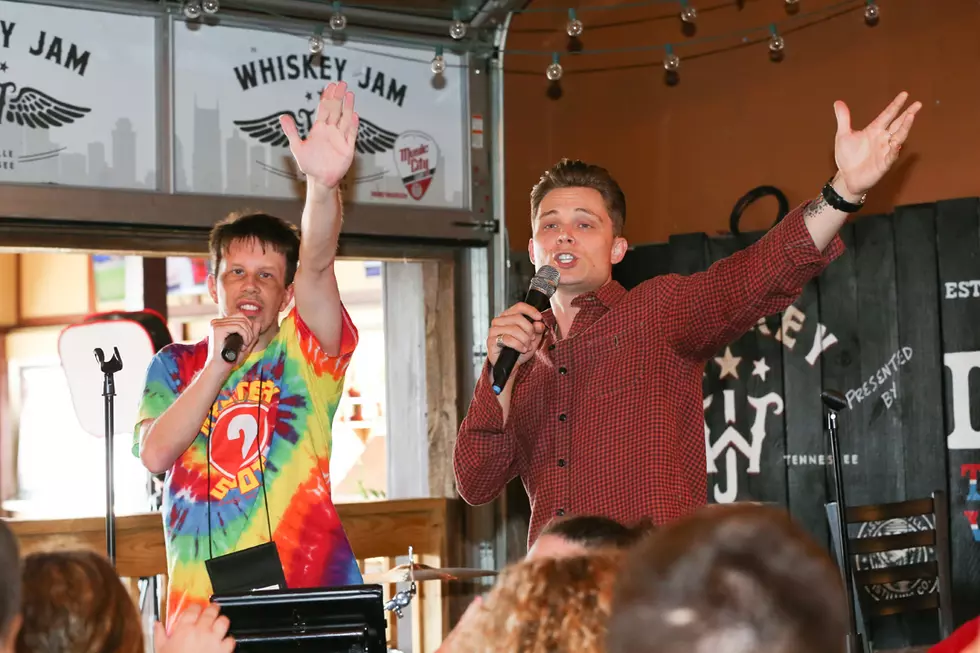
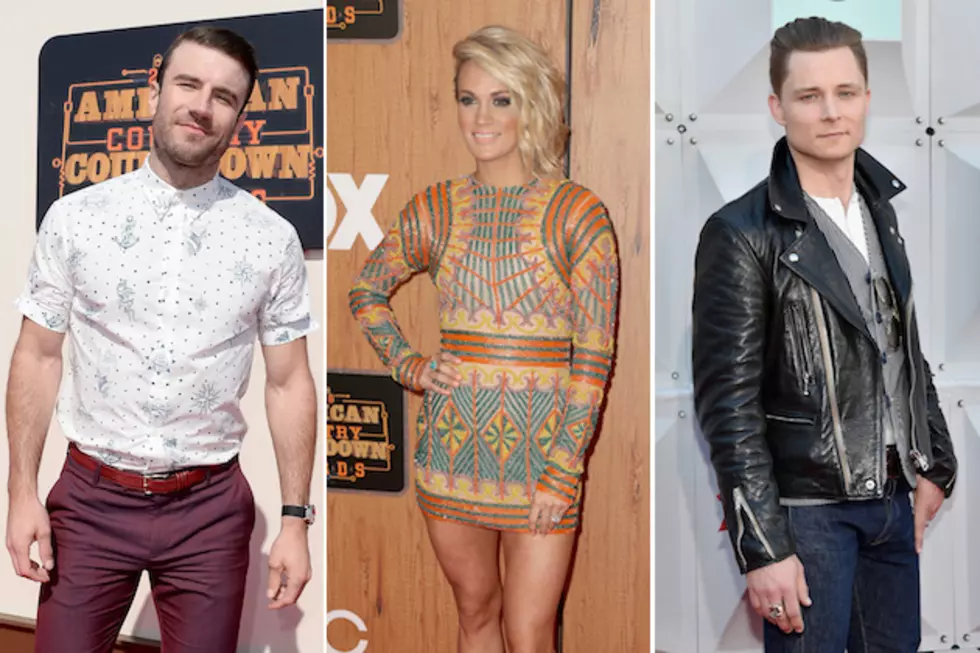
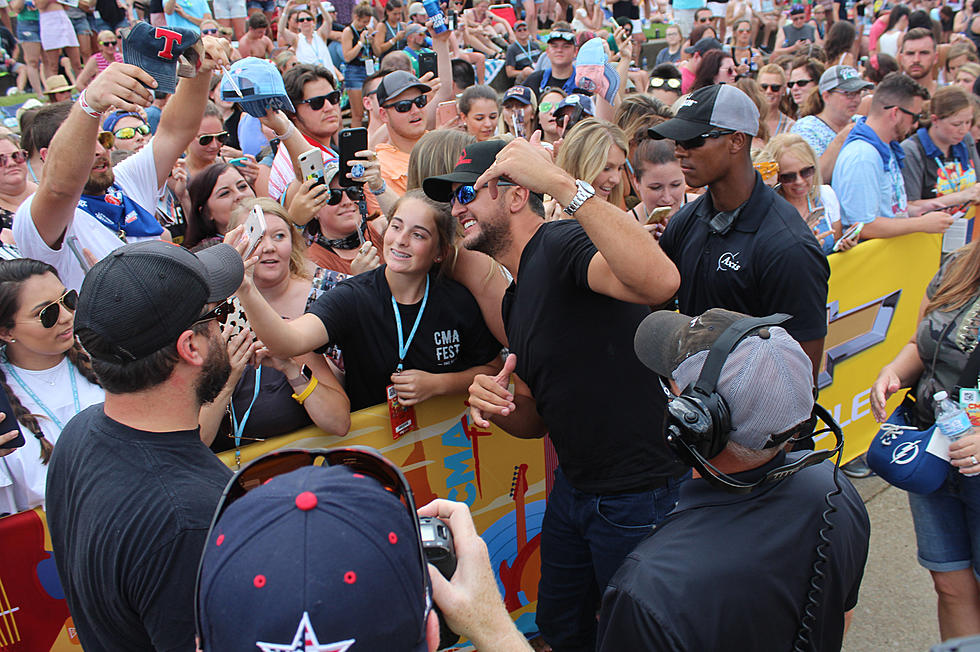

![Keith Urban, Frankie Ballard Jam on ‘Keep Your Hands to Yourself’ [Watch]](http://townsquare.media/site/204/files/2017/07/keith-urban-frankie-ballard-keep-your-hands-to-yourself.jpg?w=980&q=75)
